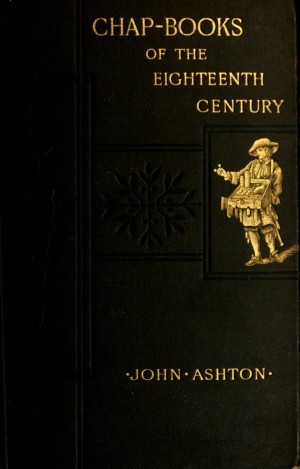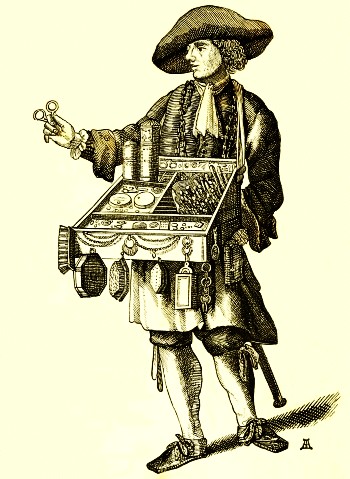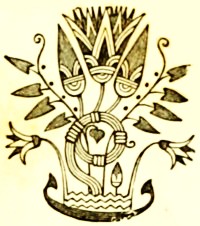
CHAP-BOOKS
OF
THE EIGHTEENTH CENTURY
WITH
FACSIMILES, NOTES, AND INTRODUCTION
BY
JOHN ASHTON
London
CHATTO AND WINDUS, PICCADILLY
1882
(All rights reserved)
PRINTED BY WILLIAM CLOWES AND SONS, LIMITED, LONDON AND BECCLES.
INTRODUCTION.
Although these Chap-books are very curious, and on manyaccounts interesting, no attempt has yet been made to placethem before the public in a collected form, accompanied by thecharacteristic engravings, without which they would lose muchof their value. They are the relics of a happily past age, onewhich can never return, and we, in this our day of cheap,plentiful, and good literature, can hardly conceive a time whenin the major part of this country, and to the larger portion of itspopulation, these little Chap-books were nearly the only mentalpabulum offered. Away from the towns, newspapers wererare indeed, and not worth much when obtainable—poor littleflimsy sheets such as nowadays we should not dream ofeither reading or publishing, with very little news in them, andthat consisting principally of war items, and foreign news,whilst these latter books were carried in the packs of thepedlars, or Chapmen, to every village, and to every home.
Previous to the eighteenth century, these men generallycarried ballads, as is so well exemplified in the "Winter's Tale,"in Shakespeare's inimitable conception, Autolycus. Theservant (Act iv. sc. 3) well describes his stock: "He hath songs,for man, or woman, of all sizes; no milliner can so fit hiscustomers with gloves. He has the prettiest love songs formaids; so without bawdry, which is strange; with such delicateburdens of 'dildos' and 'fadings:' 'jump her' and 'thumpher;' and where some stretch-mouthed rascal would, as itwere, mean mischief, and break a foul gap into the matter, hemakes the maid to answer, 'Whoop, do me no harm, goodman;' puts him off, slights him, with 'Whoop, do me noPage viiharm, good man.'" And Autolycus, himself, hardly exaggeratesthe style of his wares, judging by those which have come downto us, when he praises the ballads: "How a usurer's wife wasbrought to bed of twenty money-bags at a burden; and howshe longed to eat adders' heads, and toads carbonadoed;" and"of a fish, that appeared upon the coast, on Wednesday thefourscore of April, forty thousand fathom above water, andsung this ballad against the hard hearts of maids;" for thewonders of both ball

